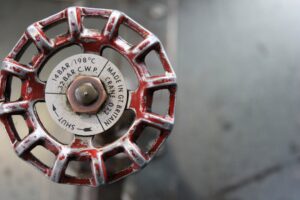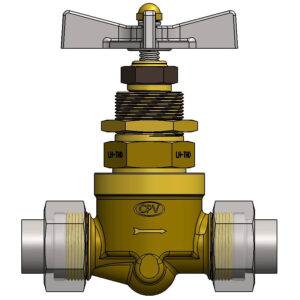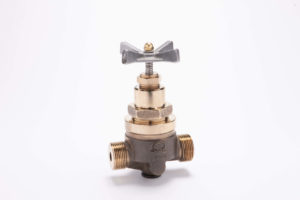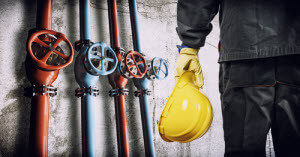How to Find and Operate Your Fuel Line Shut Off Valve
What if your city suffered a catastrophe like an earthquake or a tornado? All around you is chaos and panic and the smell of leaking fuel – natural gas and petroleum – is pervasive. You know you should immediately secure your fuel line.
Would you know how to shut off your natural gas in an emergency?
Read on to learn how to find and operate your fuel line shutoff valve.

How Do I Locate My Fuel Line Shutoff Valve?
The key to all of this is knowing ahead of time both the location and proper securing method for your fuel line shutoff valve. Your actions during an emergency could save your life, but you must have gained familiarity first!
The location of the main valve depends on what type of home you have and when the valve originated. If you live in a house, the gas meter and gas service shutoff valve is usually located on the side or in front of the house.
If you live in an apartment or condo, and the building has a breezeway, you can find it there.
Or, there could be multiple meters supplying gas to multiple units within a building, in which case there are individual gas shutoff valves for each unit near each of the gas meters, including a master valve for the entire building.
If in doubt, ask your apartment manager or condo homeowners association. Again, please do this before an emergency arises.

How to Shut Off Your Gas Valve
So now that you know where your shutoff valve is located, here’s how to shut it off. It depends on what type of valve is in place.
If the valve has a long handle, (a single-lever ball valve) then in normal operation the long side of the handle is parallel to the incoming gas line. This position allows gas to flow into your house.
If you turn the handle perpendicular to the incoming pipe, then you are closing the valve and shutting off the gas.
Your main shutoff valve (often called the street-side shutoff valve) may be in the form of a rectangular nub installed in a vertical pipe coming up from the ground.

As with the single-lever valve, when the long side of the nub or handle is parallel to the incoming gas line, it’s open. Gas is flowing.
When it’s rotated a quarter turn, perpendicular to the incoming pipe, it’s closed. Gas is off. You turn the nub with a special gas shutoff tool notched out for the nub (available at any hardware store) or with a 12-inch or larger adjustable wrench.
Gas Appliances Have Shutoff Valves Too!
Any gas appliance in your home, such as a water heater or a range, is required by code to have an individual shutoff valve co-located in the same area as the appliance.
That makes servicing of any such appliance easier and less intrusive than securing the main gas supply entering the house. The same indications for valve alignment as described above apply.
Safety First
It’s not always advisable just to close the valve and turn off the gas in an emergency. If a gas leak has caused by a catastrophic event such as what we described earlier, then it’s safer to shut off the valve and get out of the house.

That means you should clear everyone out and call the gas company or fire department. But do NOT call using a cell phone from inside the house if you smell a gas leak. There is a potential for a static charge which could spark an explosion.
There could be a neighborhood gas line rupture or some other major failure which could leave you and your family in danger even if your main supply shutoff valve is closed.
Fuel Tank Shutoff Valves
There are a number of other types of shutoff valves, such as would be found on the top of a pressurized propane tank that supplies your house or even on a portable propane cylinder.
Any of the valves we have discussed could develop a leak due to a damaged or defective O-ring seal or other internal components.
It’s advisable to check them periodically using a leak detector solution (i.e., dish soap and water) and looking for the presence of air bubbles.
We Are Valve and Fitting Experts
We’ve specialized in manufacturing high-quality valves and fittings for more than 100 years. If you have questions about fuel line shutoff valves or any other valve, contact us today!

